Welcome to thoughtful, organic beauty
Hello Joyous is an organic, plant-based, sustainable beauty brand here to bring more joy to your day.
Being prone to redness has always been part of my life, but given my healthy lifestyle, I never thought I would develop rosacea. I just assumed that the fact I’ve always blushed easily and my cheeks get really red when I do an intense workout is just who I am. Just like eczema, there is no cure for rosacea, just management of symptoms by reducing the factors that contribute to the inflammation.
I'm not gonna sugarcoat things and say it's been a walk in the park - I didn't just eat some kale and *poof* I had calm skin.
I wish it were that easy. Many people commented on my skin that it doesn't look like I have rosacea, but that's because I did a skillful job covering it up with tinted moisturizer and pressed powder when I had a flare up.
There have been plenty of tears of frustration over the years. While it's true I'm in a good place now, one thing I can say for sure is that my skin would have been far worse if I was not careful with my diet and engaged in habits that promote inflammation in the body.
Rosacea is redness that affects your cheeks, nose and chin. It is one of the most common skin conditions for people over 30. In fact, millions of people all around the world suffer from it. It is a multifactorial skin condition, which means there is no one single cause for it, which makes it a little frustrating when you’re trying to address the root cause.
That being said, there is so much you can do to manage this condition in terms of your nutrition and lifestyle.
As a nutritionist, I’ve spent a lot of time researching this condition and I can say with confidence I have tried everything natural. I have chosen not to take antibiotics or use any antibiotic or steroid creams on my skin since I feel the side effects outweigh any benefits.
In this post I’m going to share what you need to avoid if you have rosacea from a dietary perspective. Don't worry, I will do a follow up post with all the wonderfully nourishing foods you'll want to be eating like everything in this Golden Soup!
What To Avoid Eating If You Have Rosacea
This list of potentially triggering foods doesn't mean you can never eat these foods again because many of them are health-promoting. I still eat eggplant (as you know!). I also eat strawberries when they're in season, but I keep this list in mind to manage my symptoms and there is no food on this list I eat every day. Some of these items I never consume (like red wine) because they are big triggers for me. If you can learn about your unique triggers, it will help you manage your symptoms.
Rancid Oils (Most Vegetable Oils)
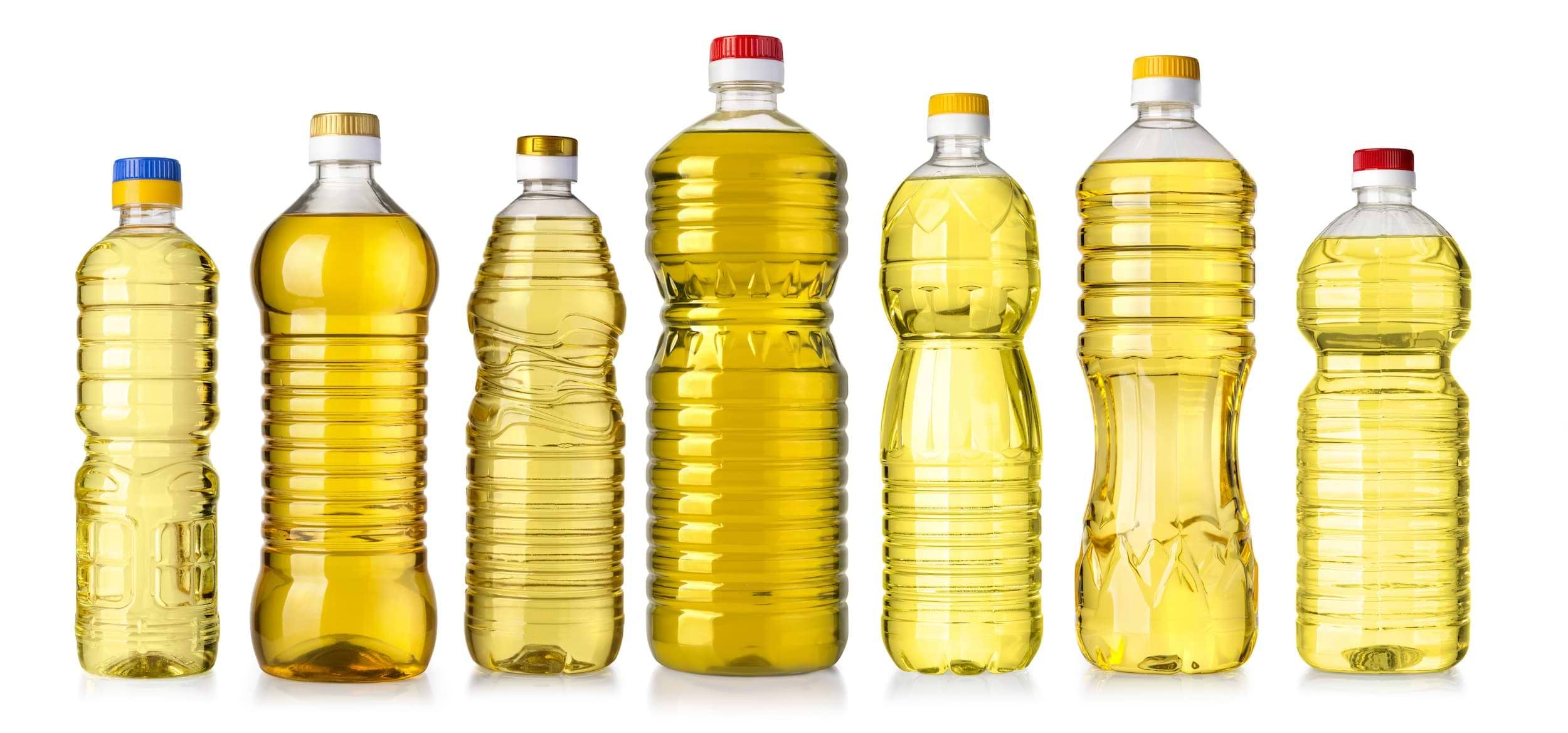
Corn oil, cottonseed oil, soybean, canola, sunflower, and safflower oil that we often find in clear plastic bottles lining the grocery store shelves should be avoided if you struggle with rosacea. The consumption of these oils has increased dramatically in the last decade.
There are multiple problems with these oils, making them the very worst choice for your health.
Before they end up in the bottle, these oils have often been treated with multiple pesticides and chemicals (many of them GMO), extracted with solvents such as hexane, been treated with multiple chemicals, and subjected to an unbelievable amount of processing from bleaching to deodorizing and more. Additionally, they are very high in omega-6 fatty acids and our diets have far too much of this fat already. When we consume an imbalanced amount of omega-6 to omega-3 fats, it can contribute to inflammation and make rosacea worse.
It’s important to note that not all plant oils are bad. Olive oil, avocado oil, pumpkin seed oil, and coconut oil are all plant-oils that I use in cooking and baking. Choose organic cold-pressed oils (that means no heat in the extraction process) and look for oils packaged in dark glass bottles. Dark glass bottles protect the oil from oxidizing (going bad). The exception is coconut oil because it’s mostly saturated fat, which means it’s more stable than olive or pumpkin seed oil.
High-Histamine Foods
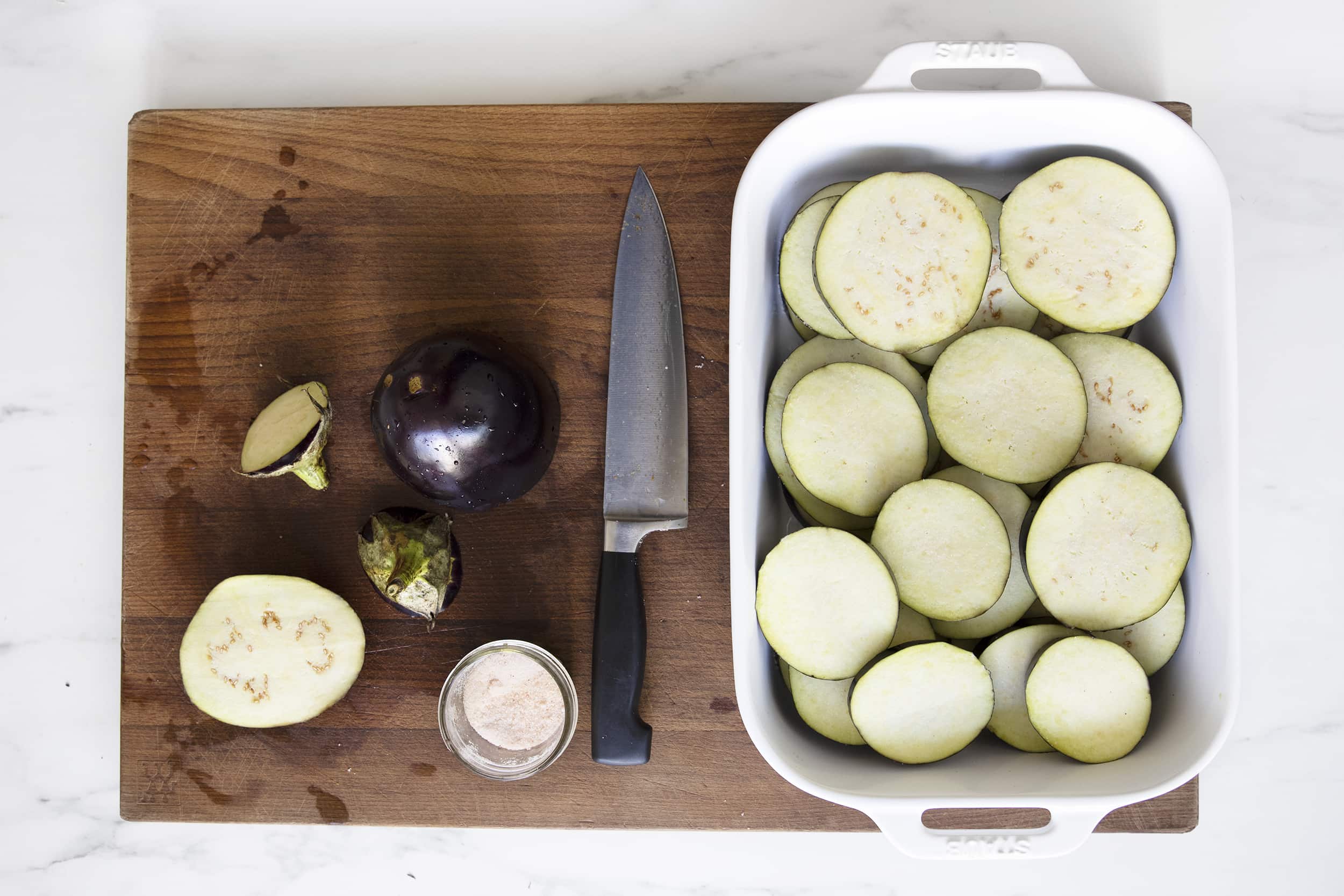
Since there are foods that are high in histamine and foods that trigger the release of histamine, I've combined both in the following list:
Histamine causes vasodilation in the skin (widening of blood vessels) which exacerbates rosacea. This reaction means that when blood vessels in the face dilate, redness follows. I take quercitin everyday because it's a phytonutrient that inhibits the release of histamine - this has helped me. All that being said, high-histamine foods may not be an issue for you. It's a bit of trial and error.
Learn more about histamine intolerance and how healing your gut is key to managing histamines.
Dairy
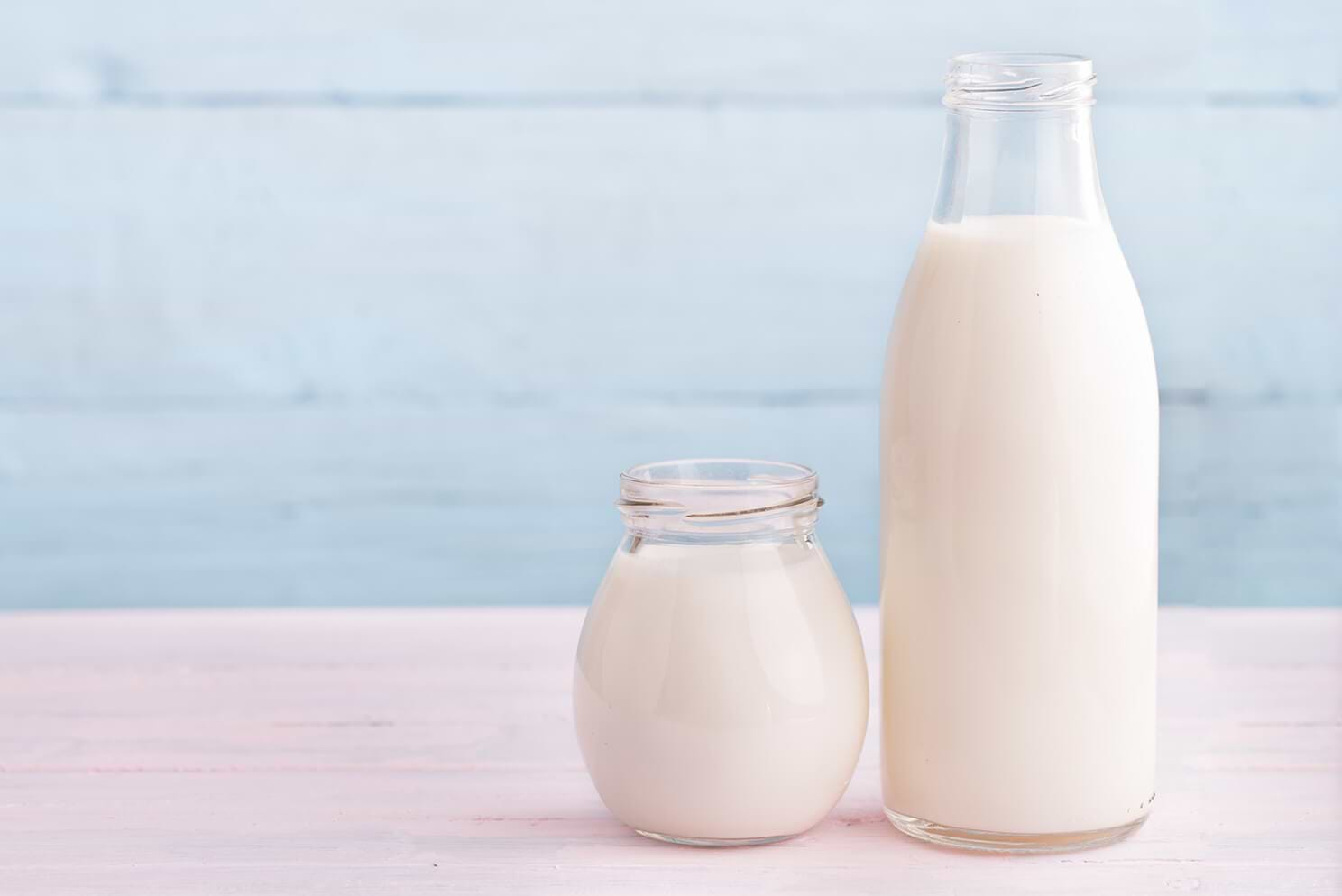
Cow's Milk
One of the most common food allergens and food sensitivities is dairy. In addition, lactose intolerance affects around 65% of the population. This means 65% of people do not make an enzyme needed to break down the milk sugar and therefore have many symptoms like gas, diarrhea, and bloating when they consume dairy.
Even though dairy is a great source of bone-building nutrients like vitamin D and calcium it has a downside. Dairy can be inflammatory (inflammation is at the root of rosacea), causing redness and swelling, making rosacea worse. Fermented dairy such as yogurt and kefir, as you just learned, is also a source of histamine.
What about goat and sheep dairy?
These forms of dairy are better options if you are sensitive to cow dairy. Sheep and goat dairy have less A1 casein protein and an abundance of A2 casein. Why does that matter? This matters because A1 is far more irritating and allergy provoking than A2. I've written more about this here: Cow vs Goat and Sheep Milk, Which is Better?
Gluten
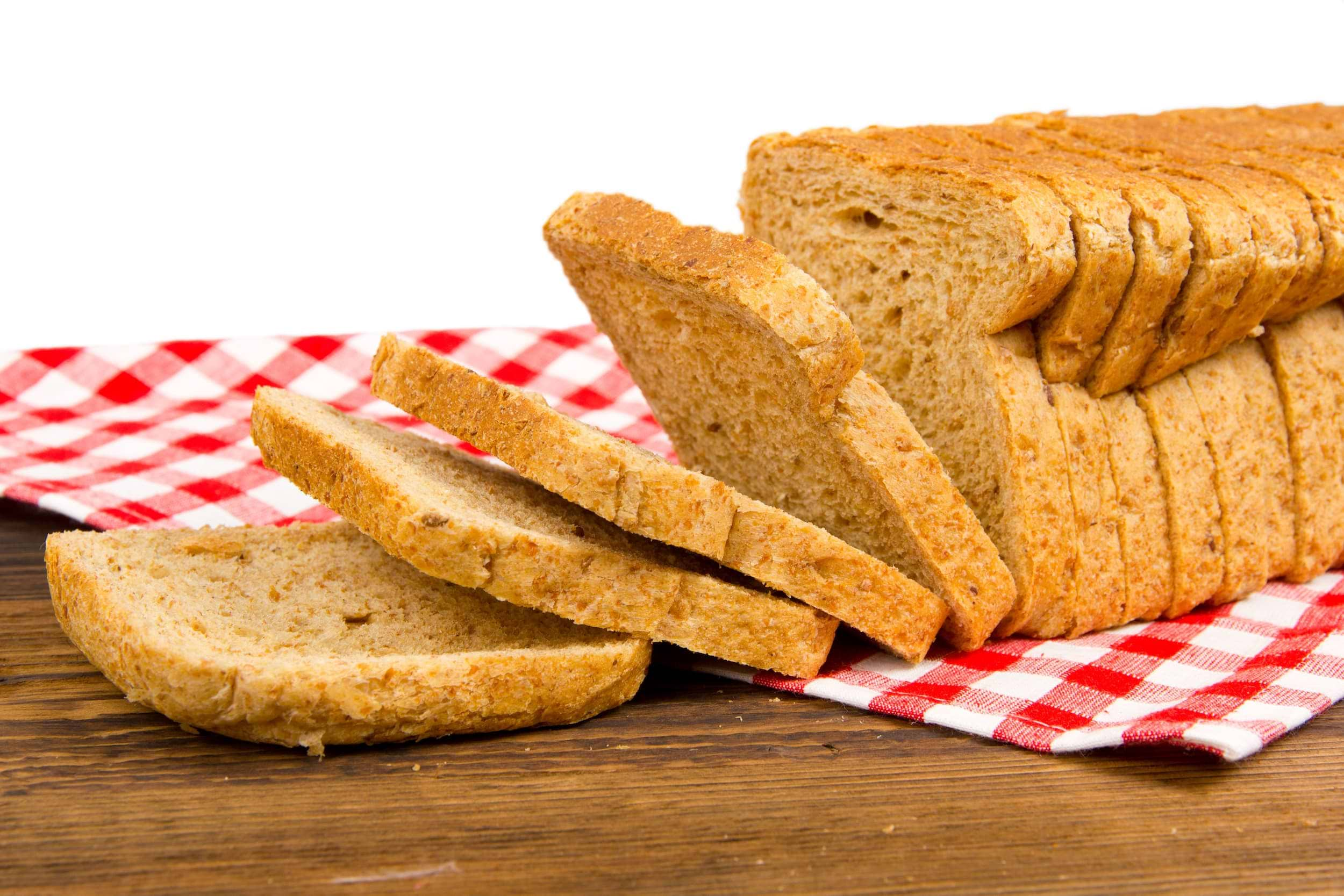
Gluten can cause increased permeability in the gut leading to leaky gut, food sensitivities, and inflammation. Increased levels of inflammation, food sensitivities, and poor gut health also exacerbates rosacea. It has been established that a high incidence of people with gastrointestinal disorders also have rosacea. It is well known that gluten can make these GI disorders worse.
Gluten intolerance, celiac disease and autoimmune disease are at the root of many skin issues beyond rosacea such as acne , eczema, and psoriasis.
Sugar
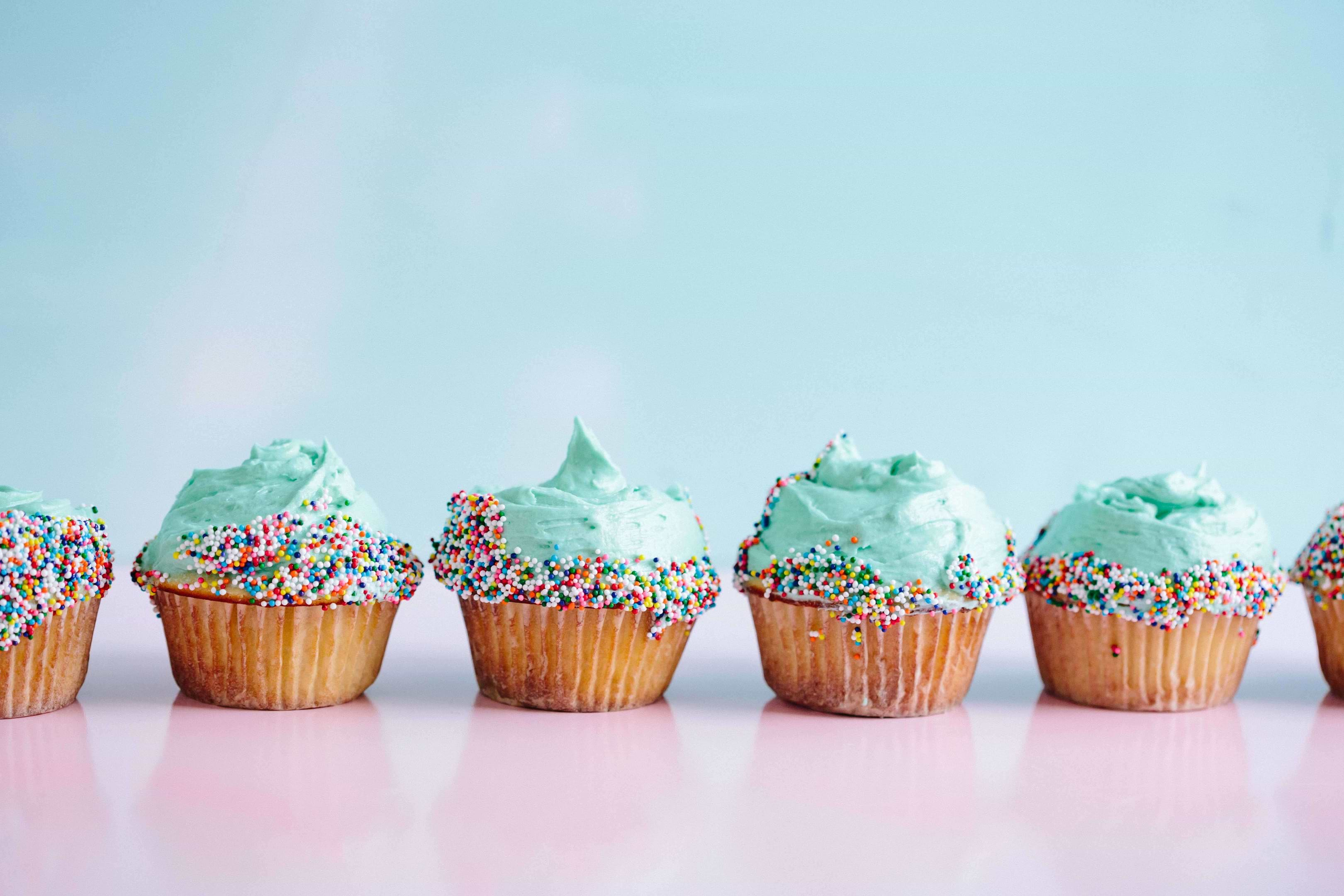
If you want to fuel the fire of rosacea then eat lots of sugar. Wait! Don't do that! Sugar worsens inflammation, increases oxidative stress, irritates the gut lining, and aggravates rosacea. It also promotes AGEs (advanced glycation end products) which has a sort-of caramelizing effect on your skin, we talk about it in season 1 of the Joyous Health Podcast, listen here .
Sugar also causes rapid swings in blood glucose and insulin levels, may increase hunger, and may elevate free fatty acid levels. The latter oxidizes and turns rancid quickly which translates to inflammation in the body. The same goes for refined starches in foods such as white rice, white bread and white pasta and other foods made with white flour.
I do my best to avoid added sugars even if it's organic cane sugar which means you must be an avid label reader. Refined sugar of course is the worst offender because it's truly nutrient dead. I use honey, stevia, maple syrup and others to sweeten but truly in moderation.
All of the dessert recipes here on Joyous Health use natural sweeteners.
Alcohol
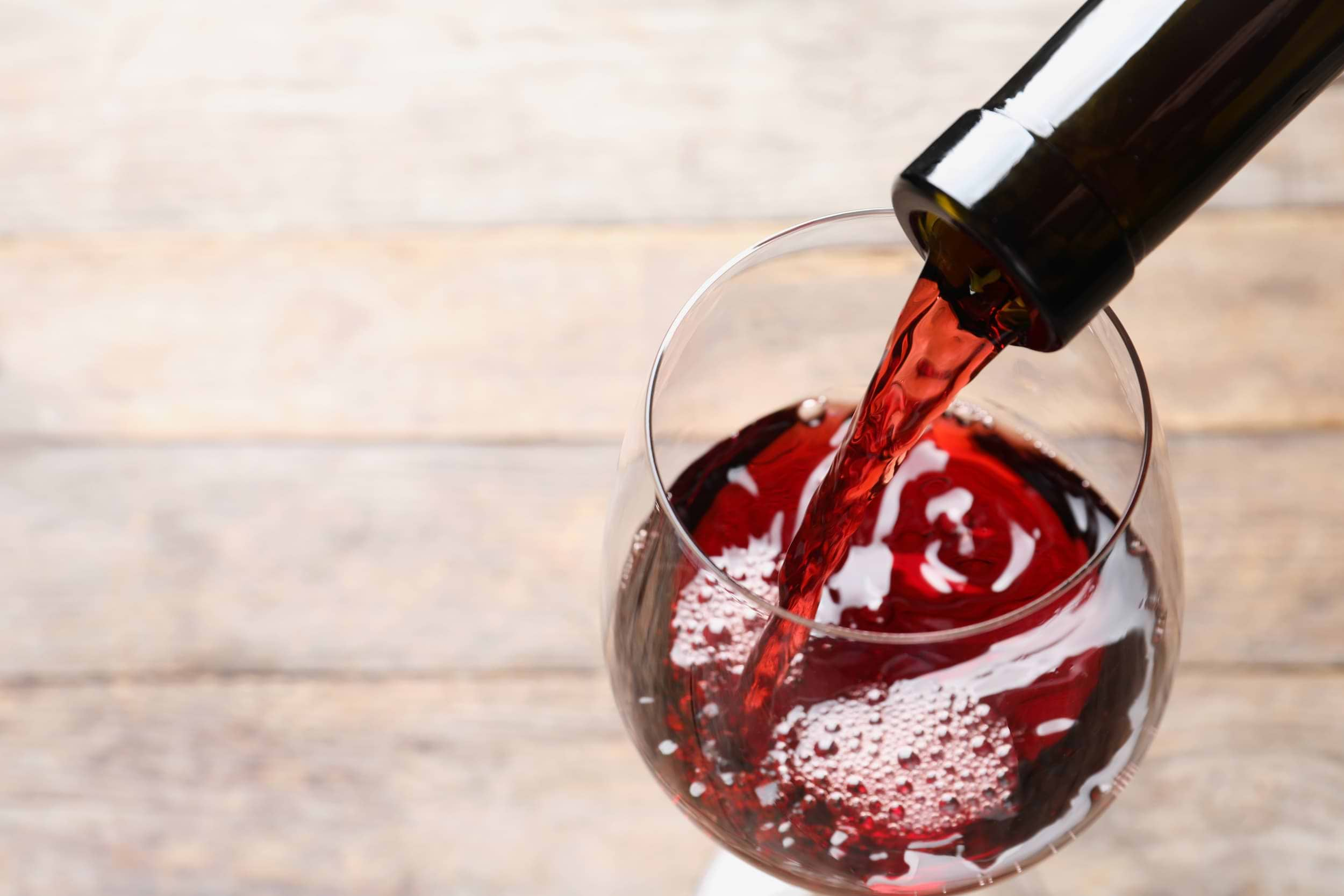
Despite the French paradox, alcohol causes increased production of inflammatory cytokines, which are cell-signaling molecules. This causes the dilation of the small blood vessels in your face, making your skin flushed. It's as simple as that. Want to reduce rosacea, skip the wine. Sorry!
Hot Drinks
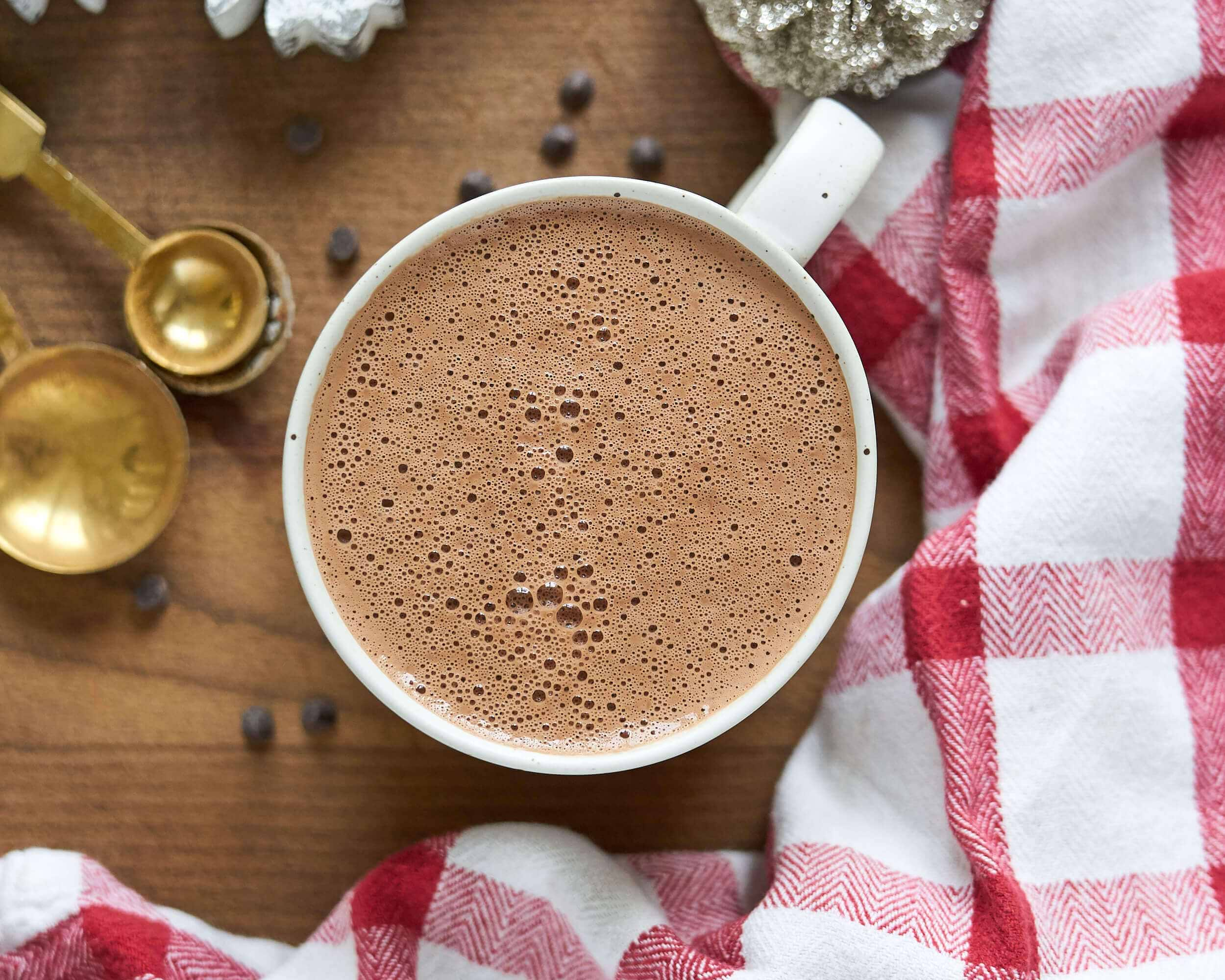
Anything really warm can set off a rosacea flare. That being said, I'm a huge tea drinker but I know that caffeinated beverages like coffee or black tea, as delicious as they are, make my cheeks very hot. However, I can slurp back any of our organic herbal teas (caff-free) with no issues. The key here is to notice your triggers and do your best to avoid them.
Spicy Foods
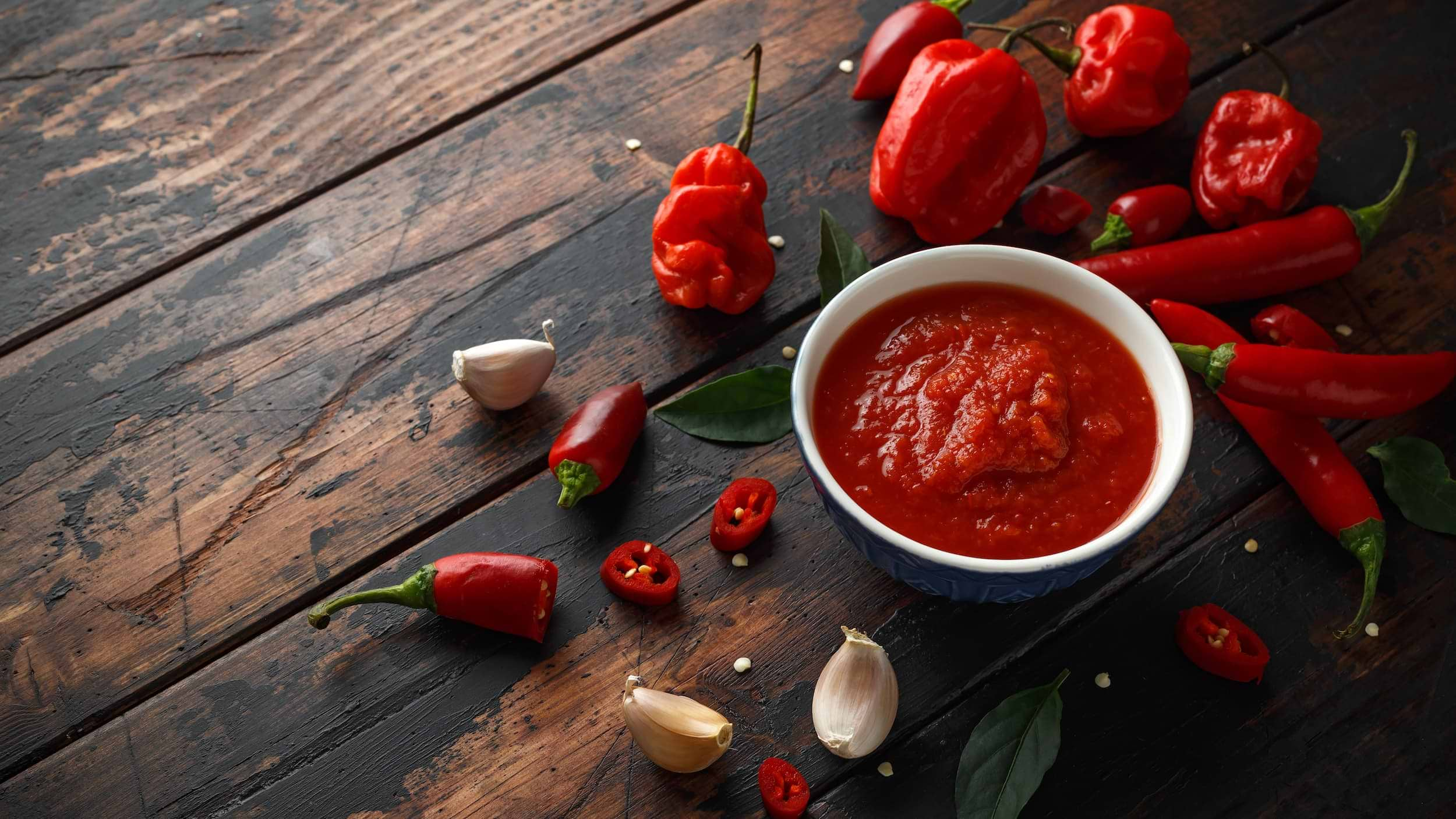
The culprit in spicy foods is the compound capsaicin. Capsaicin affects the pain receptors in your skin that feel warmth. Foods high in capsaicin include chili peppers, jalapenos, hot sauce, and Tabasco sauce. Black pepper, paprika, curry spices can also make your skin red. That being said, I love a little hot sauce on my eggs or drizzled on my cauli tacos. But I don't use it every day.
Cinnamaldehyde Foods
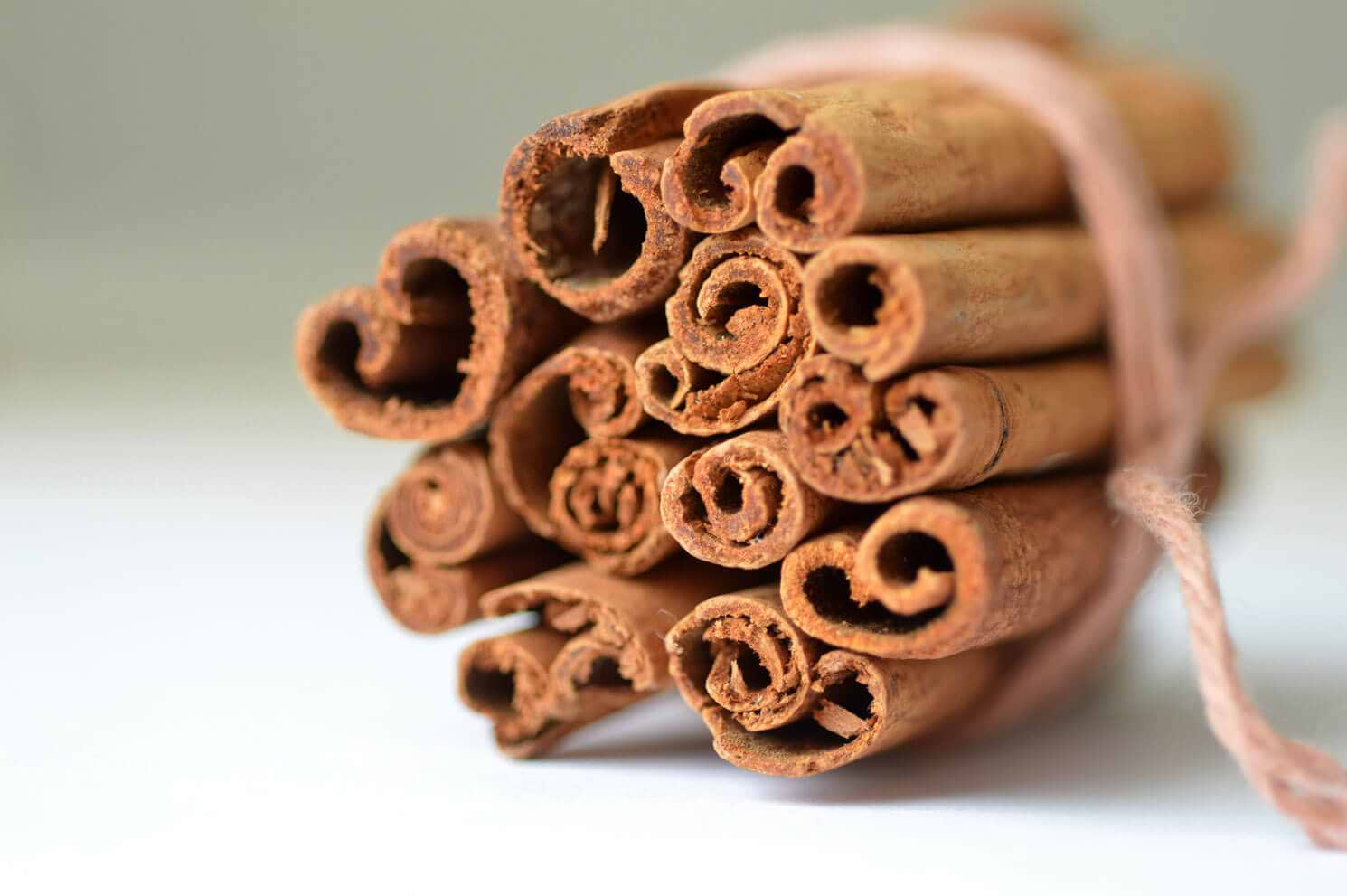
Cinnamaldehyde gives cinnamon its familiar pungent flavor. This compound causes a warming sensation that can trigger rosacea symptoms. It’s found in a range of foods including cinnamon, tomatoes, citrus fruits, and chocolate (very sad face). I haven't found this to be a big trigger for myself personally, but everyone is different so please just be aware of this one.
Remember, it's not about perfection— it's about being aware of your triggers.
If you have the knowledge about what can cause a flare up for you, then you've already won half the battle! This will build your confidence in managing your symptoms.
If you've read all the way to the bottom and you're wondering what you CAN eat, remember it's about your diet as a whole. If you eat some birthday cake or have your mom's famous apple pie and ice cream this weekend don't beat yourself up about it. If the large majority of the time you're eating nourishing foods than the occasional indulgence is okay and recommended!
I will be back to share foods to add, supplements to consider, and of course lifestyle factors that play a huge role in rosacea flare up from emotional stress to poor sleep habits.
Wishing you calm skin,
Joy xo
Thank you! very helpful. do you have advice for foods that can help calm keratosis pilaris? or foods to avoid (likely a similar list to rosacea)
ReplyHi! Glad you found it useful Sonya. I would definitely eliminate gluten from your diet and look in to vitamin A and C supplementation. Hope that helps!
Thank you for this wonderfully thorough and most thoughtful post. I've been struggling with rosacea for a little over three years now and so much of what you've written here resonates deeply. The emotional impact of this condition can be tricky to navigate at times. Patience is key, as are deep breaths and a positive outlook. The permission to occasionally indulge in triggers is helpful, too. I've not heard about quercitin so I'll definitely be looking into that - thank you for the suggestion! I've been a long-time admirer of yours and prepare food from your cookbooks weekly. Thank you for all of your beautiful, wise contributions to help us live healthier, whole lives.
ReplyYou're so right, patience is key and so are deep breaths. I've found it tough at times not overanalyzing my skin and instead, when I put on my facial products saying loving positive things about my skin. Thank you for sharing your perspective! I've got a few more posts coming out on rosacea because there is so much to unpack. If there are any topics about rosacea specifically you'd be interested in learning more let me know. I wanted to do a post about navigating the emotions with a skin disorder like rosacea and I'm also going to write about supplements and what to eat, and finally, I've got a whole post I'm going to write on lifestyle habits.
Thanks for sharing this. I developed rosacea a few years ago - at the same time as celiac disease. I am wondering about location and if there may be ties there to triggers? Yours sounds like it's mostly cheeks? Mine is my nose (and so hard to cover up!). Interested in your thoughts and the rest of this series.
ReplyThat's not surprising as rosacea is linked to celiac disease. My rosacea is on my cheeks, nose and chin but worst on my cheeks and I have bumps on my chin that come and go (subtype 2). If you don't get flare ups anymore and your nose is just permanently red I would investigate laser treatments because that can make a really big difference. I've just invested in a red light therapy which I will be trying before I got the route of rosacea to minimize the damage to my skin. I will report on that to see if makes a difference. I will keep everyone posted here!
Thank you Joy for this post! I have spent the past 6 years better understanding how to take care of myself, so my skin is taken care of too. Sleep and no alcohol have made the biggest difference in improving my rosacea. I would love to learn more about lifestyle factors (are saunas terrible for us?) and skin products you recommend. I’m currently using living libations, but have heard vitamin c serums can be beneficial. I look forward to hearing more about your journey! Thank you again!
ReplyHi Jessica! I'm happy to hear that you've noticed a big difference making sleep a priority and eliminating alcohol, I could not agree more! Regarding saunas, I think it really depends on your skin. I can handle super high heat - yes my face gets red but it doesn't stay red and the detoxification benefits are many with saunas. However, heat like from saunas and hot summer days are a trigger for many. The way I look at these factors is whether or not it leaves my face red for hours/days or it just temporarily. If it's temporary then I feel the benefits outweight the drawbacks. I will write more about this in the coming weeks.
I have Ezcema my whole life and I am on a no wheat, gluten and dairy lifestyle. I’m ok if I don’t eat those things but my scalp is still Itchy and flaky. Not sure what to do.
ReplyHi Jen, have you checked out all my posts on eczema before? https://www.joyoushealth.com/search.php?s=eczema Have you done a food allergy and a food sensitivity test? Would be worth doing both. Also, I would look at working with a practitioner as it is likely related to gut health and your microbiome.
Love this. Some good real talk here. Your closing statement at the end of the alcohol bit should have been 'not sorry'. People need to here it and it IS that simple. When there are issues that people want to fix, they need to get real!!
ReplyYou're absolutely right! I just know it's such a sore spot for many people. I really don't miss drinking alcohol at all.
Yes! People need to HEAR it!! 🤦♀️ Same. It's so rare for me. It just makes me feel crappy so its easy.
Thanks Joy, very helpful.
ReplyGlad you found it helpful Anne!
Dear Joy, my dermatologist told me, in my 40s, that I had rosacea and would be on penicillin for life. The side effects of lifetime antibiotics scared me. My naturopath put me on (Thorne) Betaine HCL
ReplySo glad to hear you avoided a lifetime of antiobiotics! Betain HCL is excellent for protein digestion. Thank you for sharing!
hey! where can i do a food sensitivity test?
ReplyPlease email [email protected] we don't sell it on the website anymore but we do have 2 or 3 testing kits left which you can buy.
Hi Joy, I recently discovered that a lot of my scalp irritation was from a chemical in my hair products called propylene glycol. I have suffered for the last 5 years now and have made some big changes as I learn my triggers. Banana being a big one. I have since switched to a clean shampoo with rosemary and lavender. Would you know if there’s any issue with rosemary as it dilates blood vessels. Would this cause irritation as well? Thank you!
ReplyRosemary shouldn't really cause an issue but any healthy ingredient can be a problem if you're sensitive to it. Glad you figured out the propylene glycol issue - it is a common skin irritant.
Hi there.I have just read your section on rosacea on what you can and cannot eat and found it helpful but still don’t know what I am going to eat😀😀😀.Mine tends to come more when I get hot and stressed and I can feel my face burning.It then appears in blotches on my cheeks and forehead and starts to go very dry and sometimes a little flaky.I try to eat right ,well at least I think so.After a few months it just suddenly,more or less,stops.Gone .Nothing there.Then a few months on ,it’s back.Very strange.Thanks for reading.Bye.
ReplyHi Paul, thanks for your sharing. Do you have any stress management strategies in place that you do not just when you feel that way but on a daily basis? I recommend meditation and it helps me greatly, as do nature walks. Unfortunately, the stress hormone cortisol is a trigger for rosacea. https://www.joyoushealth.com/27468-blog-how-meditation-changed-my-life Here are some ideas: https://www.instagram.com/p/CNpb8FPstRq/
Hello! Thank you for your post! This is the first post that I have seen that has been helpful AND encouraging and not depressing making one feel hopeless. So many have made me feel like there is no hope, but yours was full of hope. So thank you 🤗
ReplyI am really happy to hear that Stacey. If you haven't already done so, be sure to check out my other posts on rosacea, you may find them helpful as well! https://www.joyoushealth.com/search.php?s=rosacea
Wow, this was really informative. My 14 yr old daughter suffers from rosacea and has for 6 yrs! Diagnosed by specialist. I have been desperate to help her. We have gradually found out some of the triggers but to find such a great website and nutritionalist is gold. Thank you.
ReplyHi Kathleen, I'm happy to hear it helped.
You may find this post helpful as well. How to care for your skin naturally: https://www.joyoushealth.com/27515-blog-rosacea-how-i-care-for-my-skin-naturally
Thank you for this article, Ibreally appreciate it, I have been suffering from rosacea and it’s so depressing. I am still trying to figure out foods. Warmest Regards, Olga
ReplyHappy it helped Olga! Be sure to check out my other posts on rosacea:
Best foods to eat: https://www.joyoushealth.com/27493-blog-rosacea-best-foods-to-eat
How to care for your skin naturally with rosacea: https://www.joyoushealth.com/27515-blog-rosacea-how-i-care-for-my-skin-naturally
Best natural makeup for rosacea: https://www.joyoushealth.com/27516-blog-rosacea-best-natural-makeup
I think you should include corn in this including corn flour, corn sugar and corn starch. It’s in everything and causes inflammation
ReplyGreat suggestion!
Hi Joy, I’m noticing that my triggers change. Just when I think I’ve got things “ figured out” and under control, I end up adding a new list of triggers that have never bothered me in the past! Very frustrating!! Is this common??
ReplyYes, indeed that is frustrating. I would address your gut health as it could be that you're not sensitive to a food per se but rather you want to focus on reducing inflammation in your gut so you are less reactive to foods. Are you working with an ND or nutritionist? If not, I would suggest that as the next step. Probiotics or S. Boulardii can be both very helpful for support gut health. Also, check out this article on leaky gut: https://www.joyoushealth.com/27114-blog-leaky-gut-101
So basically I can drink water and eat cucumbers:/
ReplyHi Kat, sorry to hear you feel like you can't eat much! But the good news is that there is many other foods you can eat and once you improve your gut health and can deal with high-histamine foods then there are so many other foods to consider (if histamine is an issue for you). Have a listen to this podcast episode, I think you'll find it will make you feel better if you're feeling down about thinking you can't eat anything: https://www.joyoushealth.com/27562-blog-ep-66-managing-rosacea-naturally-and-building-your-healthiest-skin-with-joy-mccarthy My rosacea was very very bad and I already ate super clean. I feel that anyone can heal from this condition when they address to the root cause which is a bit of trial and error. Hope that helps, big hugs for you on your journey, you'll get there :)
Thanks 🙏!!!!
ReplyThanks it will help me understand this rosacea better....I'm from Namibia...
Replyoh good!
I have rosacea and I need help, whats some good meals/foods to eat?
ReplyHi Sydney, if you don't want to read all my posts on rosacea I would recommend listening to this podcast where I talk all about healing rosacea naturally including diet: https://www.joyoushealth.com/27562-blog-ep-66-managing-rosacea-naturally-and-building-your-healthiest-skin-with-joy-mccarthy
Helpful article, all these are triggers. However, you’re wrong about fermented foods. While it’s true they do contain trace amounts of histamines, their power as a beneficial treatment for rosacea should be considered. My skin went back to the softness and creaminess of a child’s skin when I started making my own dairy kefir. I don’t touch cheese or milk, but dairy kefir packs some powerful probiotic punches and should be considered a remedy and friend of the rosacea sufferer. I do hope you will amend your post. You’re doing a great disservice to sufferers by not espousing the great healing benefits of home made kefir.
ReplyHi Christy, it's important to recognize that what works for us, may not work for everyone. It's great that you found that kefir has helped your skin as you are your own best experiment! When I share this information, it's based on my experience as a nutritionist coupled with the science. Most rosacea sufferers are sensitive to dairy, so for the average person, it is best avoided.
Hi there. Thank you for your experience and advice. May I ask what brand of tinted moisturizer and pressed powder do you use. I’ve completely stopped wearing makeup. Best Carolyn
ReplyHello there! That's great you are no longer wearing makeup. I would suggest continuing doing that if you can :) I use WELL people pressed powder and Coola Rosilliance which has an SPF and tint.
Oh. Never heard of these. Thank you. Interested in your cook book when you have some more in stock. Thank you again for your advice. Very helpful. Carolyn Toronto
ReplyThanks Carolyn! My cookbooks should be back in stock by the end of next week :)
Best article so far on rosacea! Others don’t mention gluten and sugar which are among the triggers for me!
ReplyGlad you found it helpful. Agree, gluten and sugar are triggers for many people as they raise inflammation.
Thank you very much for sharing your nolage. I try and see what works and what doesn’t. In moderation. 😉
ReplyI struggle with popular rosacea. I eat the same thing every day to limit triggers: 1 cup coffee, 2 cups decaf green tea, 6 cups water, oatmeal, blueberries, almond milk, almond butter, lentil soup, broccoli, sweet potatoe, gala apple, hard boiled egg. Any advice. Still have some breakouts.
ReplyHi there! Sorry to hear you're dealing with this. Are you literally eating the same thing every single day? I would recommend changing it up because eating the same thing daily can lead to food sensitivities even though what you're eating is good. Almond sensitivities, for example, are very common. Have you tried changing your skincare regime? Check out my skincare - shopjoyoushealth.com/skincare. I wash with Fresh Face, spritz with Magical Mist (great to keep those papules in check) and hydrate with hella hydrating. You can look for Prosacea on amazon and it put on the raised red spots -use acutely. It dries them up and they fall off. Read this post: https://www.joyoushealth.com/27515-blog-rosacea-how-i-care-for-my-skin-naturally I hope that helps!!
I developed Rosacea type 2 when I became perimenopausal. 6 years ago. I’ve gone down the rabbit hole of allergy testing, gut testing, elimination diets, you name it. What I have heard time and time and again is that demodex mites are a trigger. I also believe there’s an emotional component. Thoughts?
ReplyHi Maree, sounds like you've done a very thorough review of many triggers. Have you done the Dutch test? It's a comprehensive analysis of your hormone levels which will provide some valuable insight. You need to do it through a practitioner as they will analyze the results. Regarding mites, we all have mites and other microscopic organisms on our skin. Some people who have rosacea have more, but it's not really a root cause. Mites on your skin can co-exist in a harmony with a healthy microbiome. If you're using antibiotic washes, cleansers with SLS or anything harsh or with a pH balance too high, this can also disrupt the delicate balance of your skin. Have you tried my skincare line? While it's not a cure for rosacea, it is made for skin that is sensitive and supports both the skin microbiome and the skin barrier function. Visit: shopjoyoushealth.com/skincare you can use code 10forfriends to save. Hope that helps!
This was amazin!! Thank you!!!
ReplyHi! How long between eating a food and seeing a trigger? Thanks!
ReplyIf it's an allergy it will be immediate if it's a food sensitivity it could be a day up to a couple of days.
Great info! Question on the high histamine foods. If you do have an issue with one of those foods, would the reaction be fairly immediate after you consume it?
ReplyThat depends whether you're reacting to the histamine or the food is a sensitivity for you. Histamine reaction is fairly quick whereas food allergies can be quick or delayed even by a couple of days. If you're only reaction to one high histamine food and don't react to other histamine foods then histamine probably isn't an issue for you.
After reading this, I’m not sure what I can eat!
ReplySugar is the big one to tackle first. Then tackle processed dairy and wheat gluten. You can do it! I have 100's of free recipes right here on Joyous Health for you to enjoy. https://www.joyoushealth.com/7-blogcat-recipes
My roseacia seemed to start the same time I was diagnosed with under active thyroid. Many years ago. Could that have a connection x
ReplyYes it could definitely connected. Thyroid is regulates dermal homestatis. Worth looking into!
I feel like this post basically just told me.... avoid everything. (esp the histamine section?) I almost feel like it would be more helpful to see what I CAN eat, since most things are eliminated.
ReplyHi there Emily, if you scroll to the bottom of this post you've commented on you will find another post with the best foods to eat: https://www.joyoushealth.com/27493-blog-rosacea-best-foods-to-eat Of course you may need to make some modifications if something on this list is a trigger for you. Some foods can be both good and bad for rosacea which is why knowing your own body well is important. Good luck!
Just want to share. I have had good results managing symptoms with Riversol Redness Control line. Also, Rosadyn Supplement.
ReplyThat's great to hear you found something that helped. I also tried their free sample and it didn't work for my skin. I also didn't think it was the cleanest product - waaaaaay too many ingredients.
Hi Joy, Everything you wrote was very informative
ReplyGlad you found it informative!
Hi Joy, I've been following an anti-inflammatory diet for 6 months now, there is some improvement, but the redness on one side of cheek won't go away. I've stopped drinking alcohol ( I only ever had a few drinks on weekends) and use moisturisers for sensitive skin. We love cruising
ReplyThat's awesome to hear you've had improvement! It can really take time to totally go away. I would check all the ingredients in your moisturizer to ensure there is nothing irritating your skin but it's may be more likely something internal. If there are broken blood vessels causing the redness you may want to look into laser to correct it.
Hi Joy You have given the most practical and helpful information. I am newly diagnosed and am still in a state of depression and have been overwhelmed by the internet. I would very much like to get more guidance, recipes and help from you if possible. Do you have any books? Or how do I become a member of that's how it works. Many thanks Denise
ReplyHi Denise, I'm sorry to hear that you are feeling that way. I felt how you did at one point too. Big hugs. Have you listened to my podcast yet? Here's a link: https://www.joyoushealth.com/27562-blog-ep-66-managing-rosacea-naturally-and-building-your-healthiest-skin-with-joy-mccarthy You WILL get there.
So just don't eat anything. Got it.
ReplyHi Tara, don't feel defeated, you've got this - sending you a big hug! Have a listen to my podcast where I go into detail about nutrition, lifestyle and supplementation. I had severe rosacea and I was able to completely heal my skin without conventional treatments and I eat delicious food every day! Follow me on TikTok as I share lots of educational videos on rosacea.
This is so helpful. I just developed rosacea at 68 and I’m trying to identify my triggers so thank you for this. I would love to receive more of your advice.
ReplyTeresa, glad you found it helpful. Sorry to hear this is happening to you but you can definitely heal your skin. Have a listen to my podcast on rosacea here and just search rosacea on my blog for more articles and information.
Any suggestions for servere Neurogenic Rosacea please its very debilitating for me. Also is soya milk okay and is it okay to take Quercitin everyday? Thankyou so much
ReplyHi there I wanted to know what tinted foundation /moisturiser you used to cover, I am really suffering at the moment with redness but can't work out what to put on my skin that won't make it worse Thanks
ReplyHi there, I have a whole post on caring for your skin. Depending on the colour of your skin, there are powders that can mask any redness. If you are fair skinned, green does a great job. Read more here: https://www.joyoushealth.com/27516-blog-rosacea-best-natural-makeup And caring for your skin: https://www.joyoushealth.com/27515-blog-rosacea-how-i-care-for-my-skin-naturally
This article was really interesting and very informative. I suffer badly with broken capillaries on my nose and eat a lot of the bad foods you described , which i love, but hadn't realised they made my condition worse. However, makes so much sense now, as since eating these foods a lot in the last few months my condition has worsened. Thank you so much for this article. 🤗
ReplyYou're welcome! Glad you found it helpful Carole!
Thankyou for your advice, I've only recently realised I've got rosacea and Ive been struggling with my triggers. I'm now finding what makes me flare and sometimes come out in nasty leisons on chin and cheeks. Mine apart from alot of other triggers is definitely stress!!, but if your skin is irritated does that mean you've eaten or drank something that's a potential trigger? or is this just normal now I have rosacea. I've found reading your blog so interesting thankyou
ReplySorry to hear you're dealing with rosacea. I have lots of resources on here and my podcast as well. Stress is a big culprit for skin as is inflammation. I would take a look at all the inflammatory foods in your diet and also your skincare (this is what I use), make sure it's gentle and nourishing. Check out this post: https://www.joyoushealth.com/22270-blog-10-foods-to-reduce-inflammation
Thankyou for returning with more advice. Kind regards Lulu
ReplyOf course, my pleasure!
Wow! Thank you so very much for the time you put in, I’m trying to navigate my way in preventing flare-ups! Everything I love in food is a Rosacea trigger!! I’ll just have to readjust! Thank you for saving me trail and error mode for the next few months, greatly appreciated!!
ReplyMy pleasure, glad it can help. In this post here, I've consolidated everything. Hope it helps!